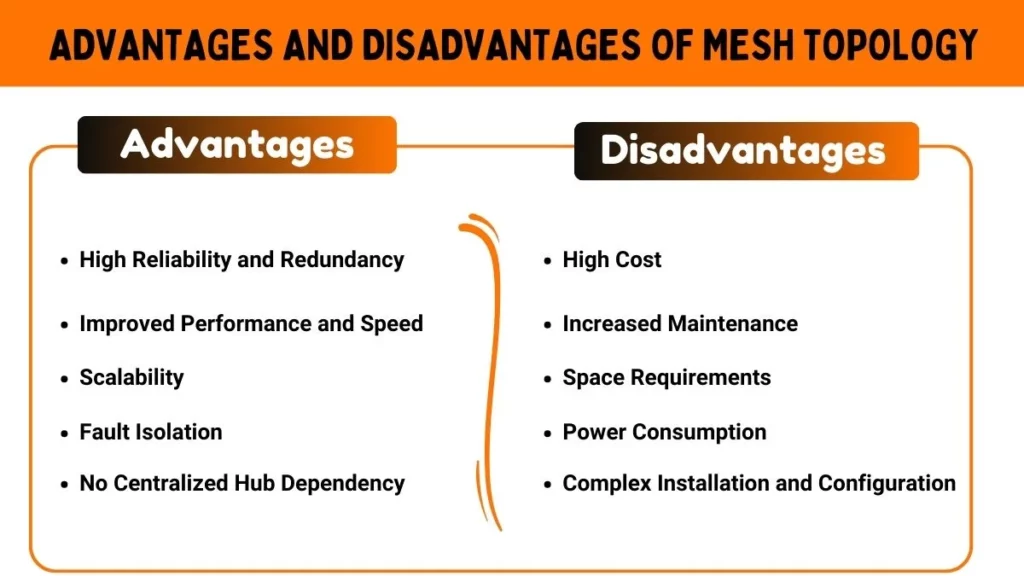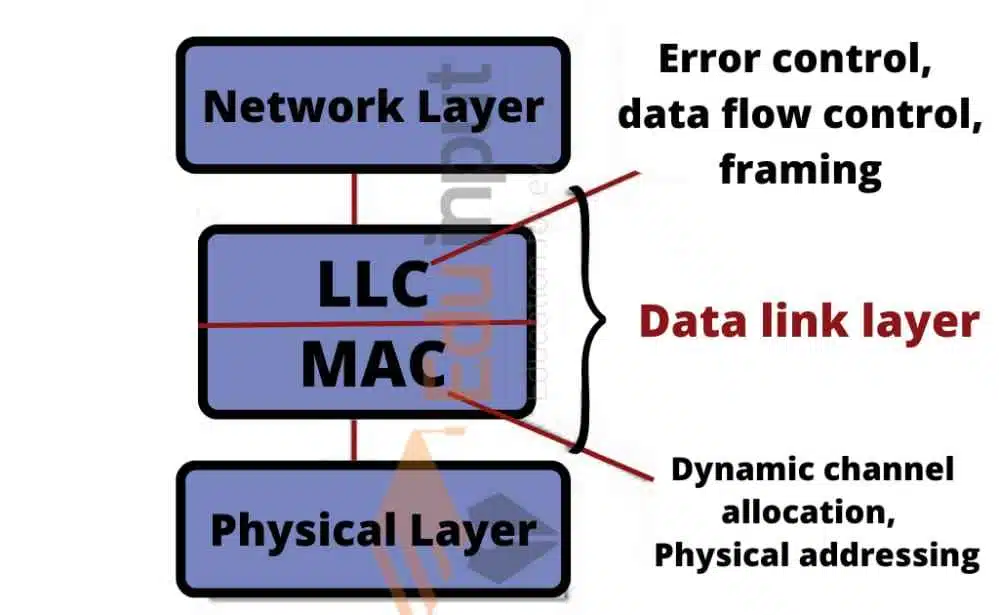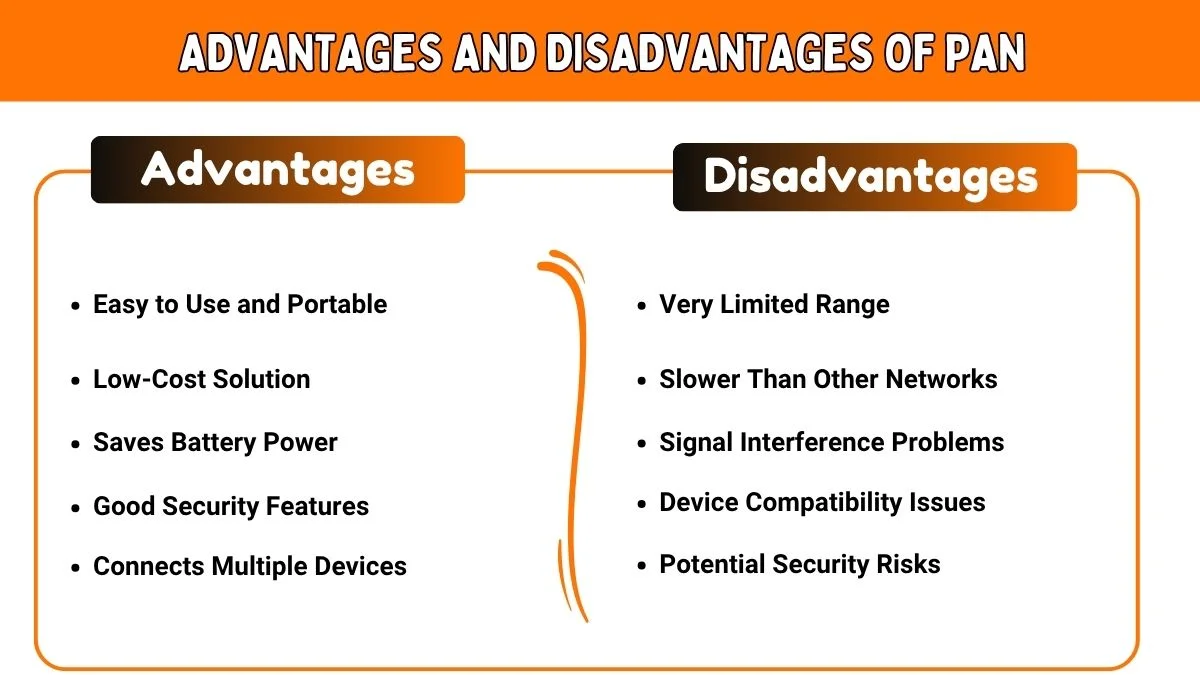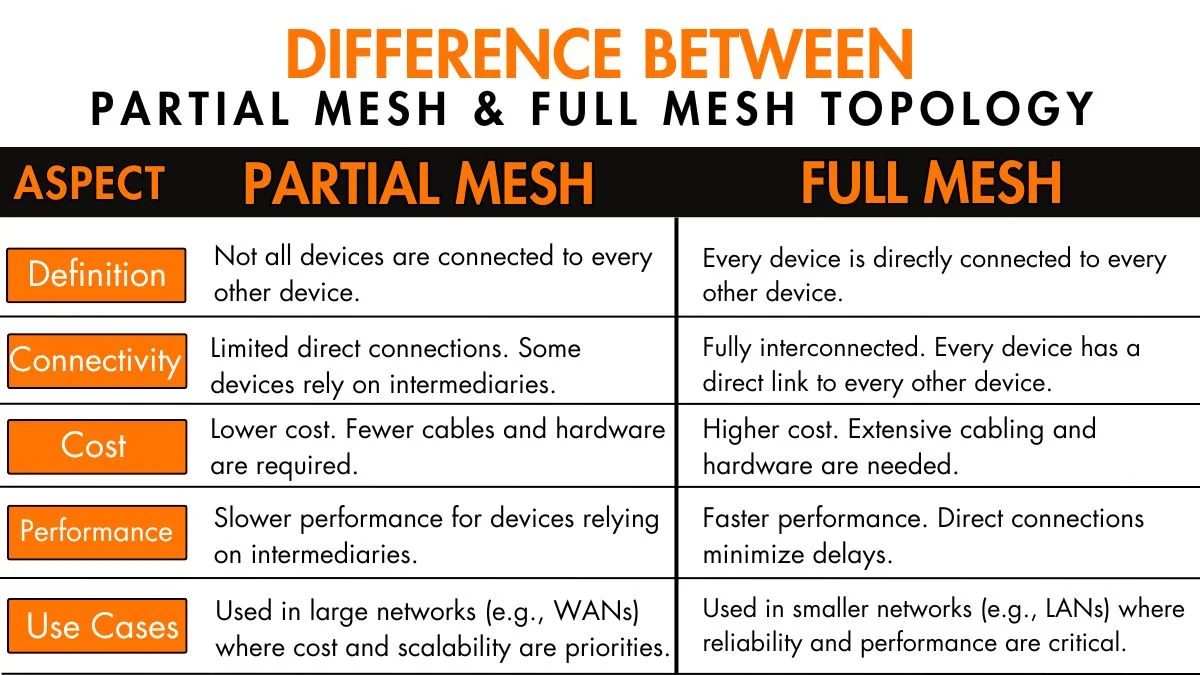Advantages and Disadvantages of Mesh Topology
Mesh topology has advantages such as high reliability, speed, and security. However, it also has disadvantages, like high cost and complexity. It is best for large networks where reliability is important. For small networks, simpler topologies are better.
Advantages of Mesh Topology
Here are some benefits of mesh topology:

1. High Reliability and Redundancy
There are many paths for data to travel in mesh topology. If one path fails, data can use another path to reach its destination. This makes the network very reliable.
For example, if one cable breaks, the network still works. This is called redundancy. Redundancy is important in places where the network must always work, like hospitals or banks.
2. Improved Performance and Speed
Data can choose the shortest or least busy path to travel. This reduces traffic and makes the network faster.
For example, in a busy office, mesh topology helps avoid slow internet. Faster networks are better for tasks like video calls or downloading large files.
3. Scalability
New devices can be added easily without stopping the network. This makes mesh topology good for large networks.
For example, adding a new computer in a school lab is simple. Scalability is important for growing businesses or schools that need more devices over time.
4. Enhanced Security
Data travels through specific paths, so it is hard for hackers to access. Each connection is private, making the network safer.
For example, in a bank, mesh topology keeps customer data secure. Security is very important for networks that handle sensitive information.
5. Fault Isolation
If one device or connection fails, it is easy to find and fix. The rest of the network keeps working normally.
For example, if a printer stops working, the other devices are not affected. Fault isolation makes troubleshooting easier and saves time.
6. No Centralized Hub Dependency
Mesh topology does not depend on a central hub or server. If one device fails, the network does not stop. For example, in a smart home, if one light stops working, other devices still work. This makes mesh topology very reliable for large networks.
Disadvantages of Mesh Topology
Here are some drawbacks of mesh topology:
1. High Cost
Mesh topology needs many cables and devices. This makes it expensive to set up and maintain.
For example, a large office using mesh topology will spend a lot of money. The cost includes cables, switches, and skilled technicians. Small businesses or schools may not have the budget for this.
2. Complex Installation and Configuration
Setting up mesh topology is difficult and takes time. It requires skilled technicians to install and manage it. For example, a school may need an expert to set up the network. The complexity increases with the size of the network. This can delay the start of the network.
3. Increased Maintenance
Regular checks are needed to keep the network working. Fixing problems can be hard because of the many connections. For example, a company using mesh topology must hire IT staff for maintenance. Maintenance costs can add up over time.
4. Space Requirements
Mesh topology uses a lot of cables and hardware. This takes up a lot of physical space. For example, a small room may not have enough space for mesh topology. The cables can also look messy and need proper management.
5. Power Consumption
Every device in the network needs power to work. This increases electricity usage and costs. For example, a large factory using mesh topology will have high energy bills. High power consumption is not good for the environment.
6. Over-Engineering for Small Networks
Mesh topology is not needed for small networks. Simpler topologies like star or bus are cheaper and easier to use. For example, a small shop does not need mesh topology. Using mesh topology in small networks is like using a big truck to carry a small box.







Leave a Reply